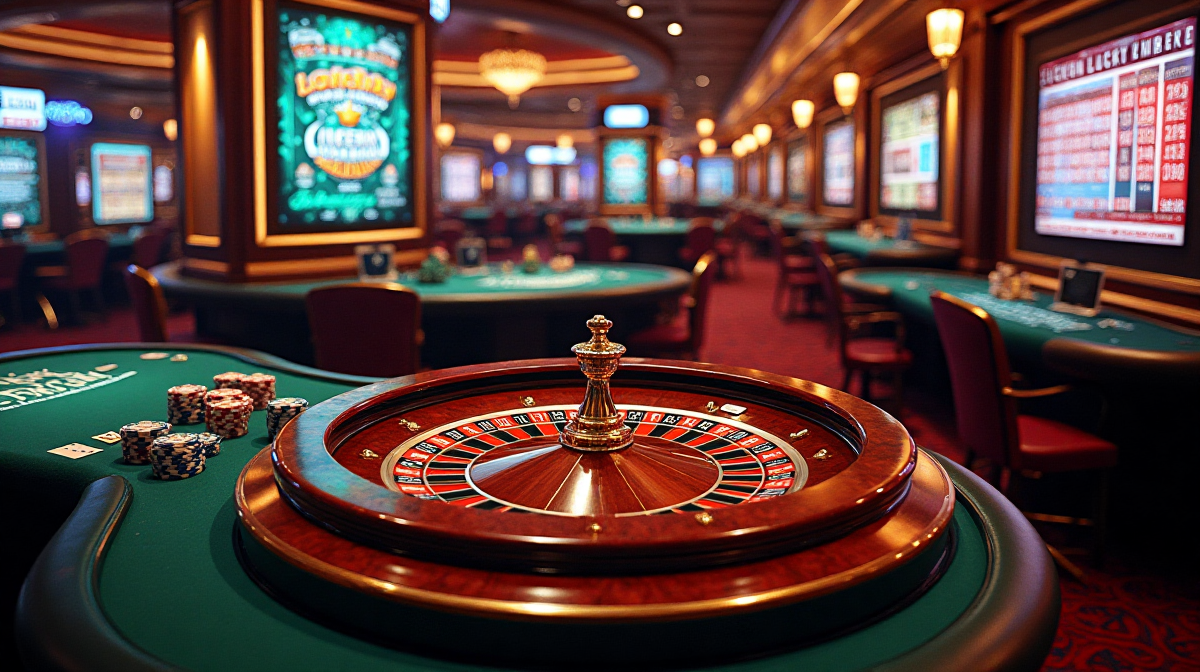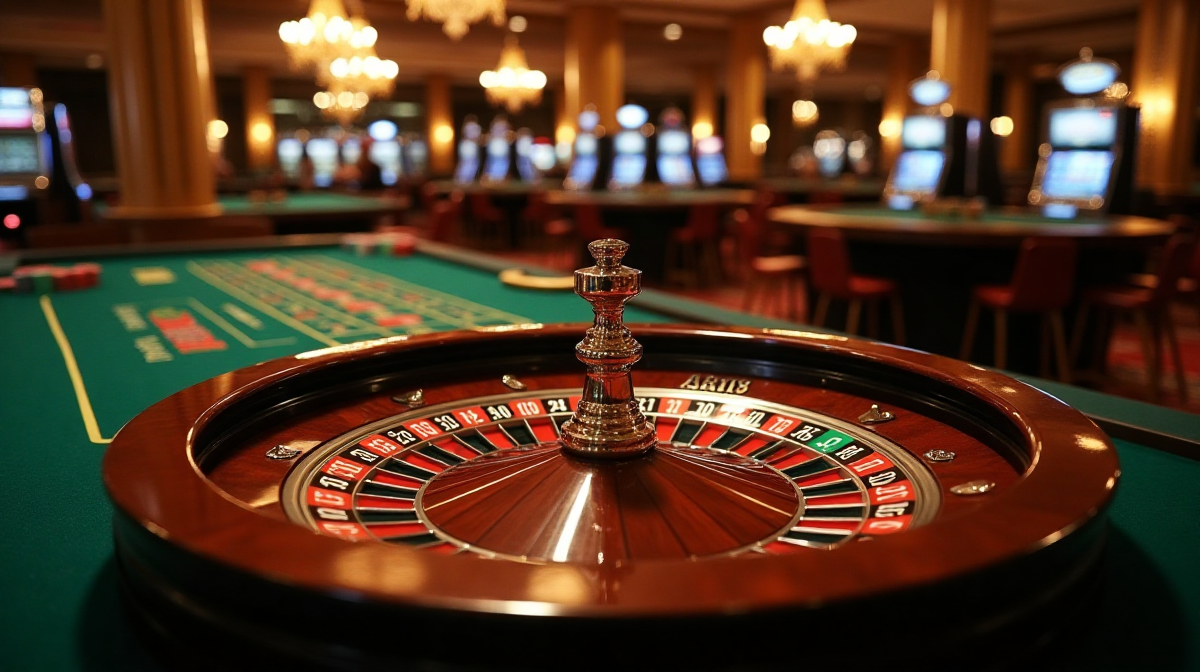Lucky Number Bet: Does it Really Work?
The Allure of Lucky Numbers in Gambling
From ancient civilizations to modern-day lotteries, the human fascination with lucky numbers is undeniable. We imbue certain sequences with special meaning, believing they hold the key to fortune. This belief permeates the world of gambling, driving individuals to repeatedly choose specific numbers in the hope of hitting the jackpot. The appeal is simple: the idea that a pre-ordained destiny, a fortunate alignment of digits, can drastically alter one’s life. But is there any genuine merit to this belief, or is it simply a comforting illusion?
Defining “Lucky Number” Bets – What are they?
“Lucky number” bets encompass a wide range of wagering choices across various games. In lotteries, it's consistently selecting birthdays, anniversaries, or other personally significant dates. In roulette, it’s fixating on a number that feels “right.” Keno players often choose numbers based on perceived patterns or numerological significance. Even in card games like play poker, players might favor certain hands or betting patterns based on superstition. The common thread is the conviction that a specific number possesses an inherent advantage, a higher probability of winning than others. The bet number chosen is often more emotionally driven than logically determined.
The Core Question: Can Luck Be Systematized?
At the heart of this fascination lies a fundamental question: can luck be systematized? Can we identify patterns, apply numerological principles, or leverage personal significance to increase our chances of winning? This article delves into the psychology, mathematics, and realities surrounding lucky number betting, aiming to provide a balanced perspective on whether this approach holds any genuine value.
The Psychology Behind Lucky Numbers
Numerology and its Influence on Betting
Numerology, the belief in the mystical significance of numbers, has a long history of influencing betting behavior. Assigning meanings to numbers – based on birthdates, names, or other factors – leads individuals to believe that certain digits are inherently more fortunate than others. This influences which bet number 360 or other sequences are chosen, regardless of the actual probabilities involved.
Personal Significance – Birthdays, Anniversaries, & Meaningful Dates
The most common source of “lucky numbers” is personal significance. Birthdays, anniversaries, and other emotionally resonant dates are frequently chosen in lotteries and other games. This isn’t necessarily about believing the numbers are lucky, but rather about the emotional connection they represent, offering a sense of control and hope.
Cognitive Biases – Why We Believe in Luck
Several cognitive biases contribute to our belief in luck. Confirmation bias leads us to notice and remember instances where our lucky numbers ‘win’ (even in minor ways), while dismissing occurrences where they fail. Illusory control makes us feel as though we have more influence over random events than we actually do. The desire to find patterns, even where none exist, reinforces the idea of lucky numbers.
The Role of Superstition in Gambling Behavior
Superstition is deeply intertwined with gambling. Rituals, charms, and specific number selections are often employed as a way to exert control over an inherently unpredictable outcome. This behavior provides a sense of comfort and reduces anxiety, even if it has no logical basis.

Examining the Odds – A Mathematical Perspective
Probability in Games of Chance
Games of chance, such as lotteries and roulette, are governed by probability. Each number has an equal chance of being selected in each draw. These events are independent, meaning that past results have no bearing on future outcomes. The odds are mathematically defined and remain constant regardless of personal beliefs or chosen numbers.
The Law of Large Numbers
The law of large numbers states that over a large number of trials, the observed frequency of an event will converge towards its theoretical probability. This means that while any number could win, the likelihood of any specific number winning remains the same over time. It doesn’t favor consistently choosing the same lucky number bet.
Why Past Results DO NOT Predict Future Outcomes
A common misconception is that numbers that haven’t been drawn in a while are “due” to appear. This is demonstrably false. Each draw is independent, and the odds reset with every game. Past results offer no predictive value.
Are “Hot” and “Cold” Numbers Real?
The concept of “hot” and “cold” numbers – those that are frequently or infrequently drawn – is a popular one. However, statistical analysis consistently demonstrates that these patterns are simply the result of random variation. Any perceived streaks are likely due to chance and will eventually regress towards the mean.
Case Studies & Examples of “Lucky Number” Systems
Birthday Number Systems in Lottery
Using birthdays as lottery numbers seems logical, but it’s statistically flawed. Because birthdays are limited to the range of 1-31, and months 1-12, many players choose numbers within this range, increasing the likelihood of sharing a jackpot if those numbers win.
Roulette Strategies Utilizing Lucky Numbers
Strategies like the Martingale (doubling your bet after each loss) or Fibonacci sequence, when applied to “lucky numbers,” don’t alter the fundamental odds of the game. They can lead to significant losses, especially when hitting betting limits.
Keno Number Selection and the Illusion of Patterns
Keno, like other lottery-style games, suffers from the same illusion of patterns. Players often try to identify hot or cold numbers, but the draws are entirely random.
Analysis of Reported “Winning” Stories
Reported stories of winning with “lucky numbers” are often anecdotal and subject to survivor bias. Thousands of people use the same systems and lose, but the winners are the ones who share their stories.
The Dark Side: Problem Gambling & Lucky Number Thinking
How Belief in Lucky Numbers Can Contribute to Addictive Behavior
Belief in lucky numbers can contribute to addictive gambling behavior by creating a false sense of control and hope. This can lead individuals to chase losses and continue betting even when they are experiencing financial difficulties.
Chasing Losses & The Gambler’s Fallacy
The gambler's fallacy—the mistaken belief that past events influence future independent outcomes—is often fueled by the conviction that a lucky number is bound to come up eventually. Chasing losses, driven by this fallacy, can lead to a dangerous cycle of increasing bets and escalating debt.
Recognizing the Signs of Problem Gambling & Where to Seek Help
Signs of problem gambling include spending more money than you can afford to lose, lying to family and friends about your gambling habits, and feeling restless or irritable when trying to cut back. Resources are readily available to help, including the National Problem Gambling Helpline.
Responsible Gambling Strategies & Setting Limits
Responsible gambling involves setting limits on your spending and time, avoiding chasing losses, and treating gambling as a form of entertainment, not a source of income.
Exploring Alternative Strategies
Statistical Analysis vs. Random Selection
While statistical analysis can’t guarantee a win, it can help you avoid common pitfalls like choosing frequently selected numbers that might lead to a shared jackpot. However, even a statistically informed approach doesn’t change the underlying odds.
Syndicates & Group Plays
Joining a syndicate or group play increases your chances of winning by allowing you to purchase more tickets. However, any winnings are then shared among the members.
Bankroll Management
Effective bankroll management is crucial for prolonging your play and minimizing potential losses, regardless of the numbers you choose. Setting a budget and sticking to it is essential.
Understanding Expected Value
Expected value represents the average profit or loss you can expect from a bet over the long run. Lucky numbers do not improve your expected value; in fact, they can worsen it if they lead to irrational betting decisions.

Conclusion: Does it Really Work?
Recap of the Psychological and Mathematical Arguments
The allure of lucky numbers stems from psychological biases, numerological beliefs, and the human desire for control in a chaotic world. However, from a mathematical perspective, these beliefs are unfounded. The odds in games of chance are determined by probability, and past results have no bearing on future outcomes. Whether you choose a bet number based on a dream or a carefully constructed system, the underlying probabilities remain the same.
The Bottom Line: Lucky Numbers and the Pursuit of Fun vs. Profit
Lucky numbers might add an element of fun and personal significance to the gambling experience, but they do not increase your chances of winning. If you’re seeking profit, focusing on responsible gambling strategies and understanding expected value is far more effective than relying on superstition.
Final Thoughts: Embrace the Chance, But Manage Your Expectations.
Gambling should be viewed as a form of entertainment, not a get-rich-quick scheme. Embrace the chance, enjoy the thrill of the game, but manage your expectations and gamble responsibly. And remember, in the world of chance, luck is often just a matter of perspective. Even understanding how to play poker game effectively doesn’t guarantee a win; skill and luck both play a role.

